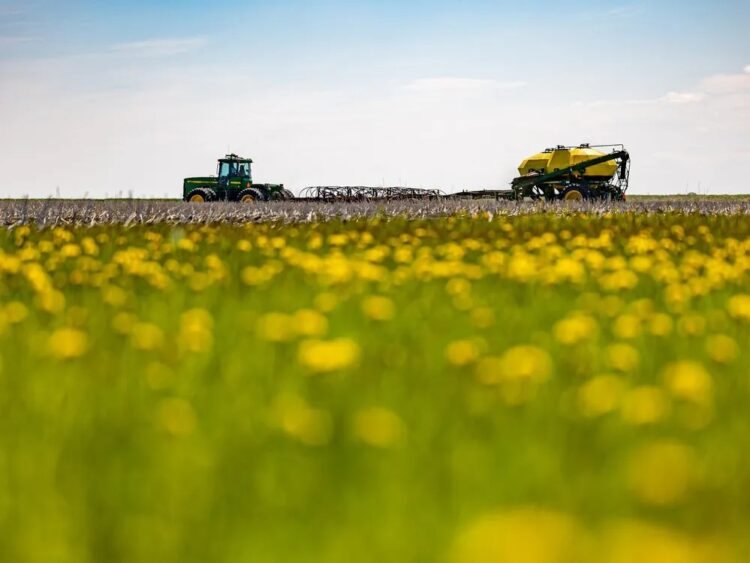Farmers in Saskatchewan may soon face tariffs again, as China has announced new retaliatory measures targeting Canadian canola, pork, and other food products.
These tariffs are a response to Canada’s decision to impose 100% tariffs on Chinese-made electric vehicles (EVs), as well as steel and aluminum imports.
Canadian canola and peas will now face a 100% tariff, while pork and aquatic products are subject to a 25% tariff.
Jeremy Welter, vice president of the Agricultural Producers Association of Saskatchewan (APAS), notes that the canola market is already being impacted by the announcement.
“Many grain buyers have either stopped bidding or are reducing their prices,” Welter explained. “The canola market is in complete turmoil.”
Saskatchewan produces over half of Canada’s canola, accounting for about 55% of the national total, with around 10 to 12 million acres of land dedicated to growing the oilseed. Approximately 90% of Canadian canola is exported, and China is one of the largest buyers. In 2024, Canada exported $4.9 billion worth of canola to China.
Welter warns that if Canadian canola exports to China cease, there will be a surplus of the crop, which would significantly reduce prices. “You will see a substantial drop in the value of the commodity when you try to sell it,” he said.
Canola is a valuable but expensive crop to grow, and the upcoming March 31 crop insurance deadline in Saskatchewan will give farmers just weeks to decide whether to plant canola this year and in the future.
“It’s something farmers will need to factor into their business plans,” said Tracy Broughton, executive director of SaskCanola. “Each farm is different, so it’s difficult to predict.”
The new Chinese tariffs are set to take effect on March 20.

 English
English



























































